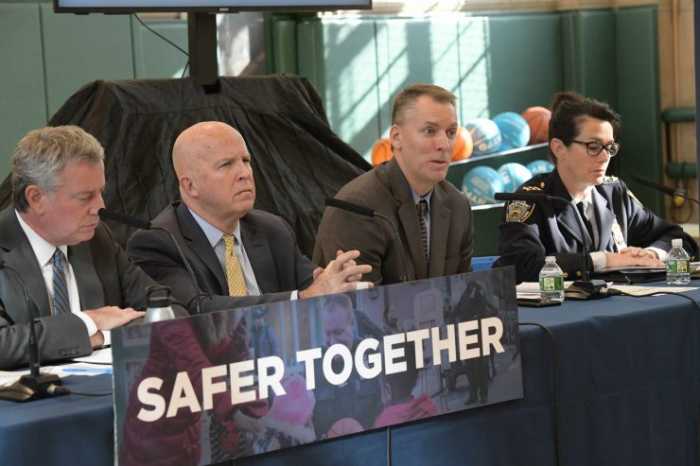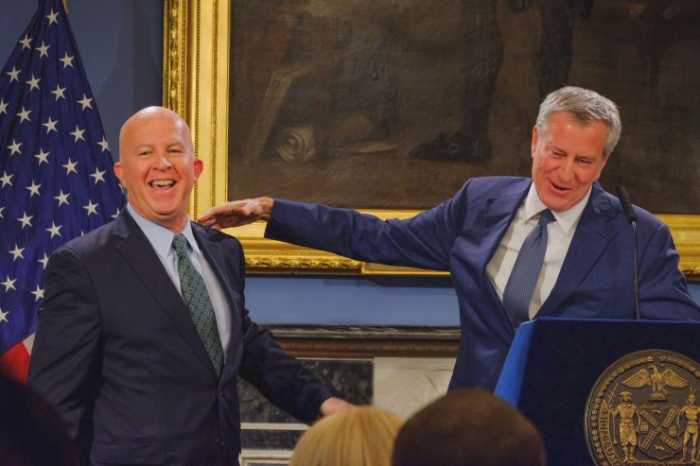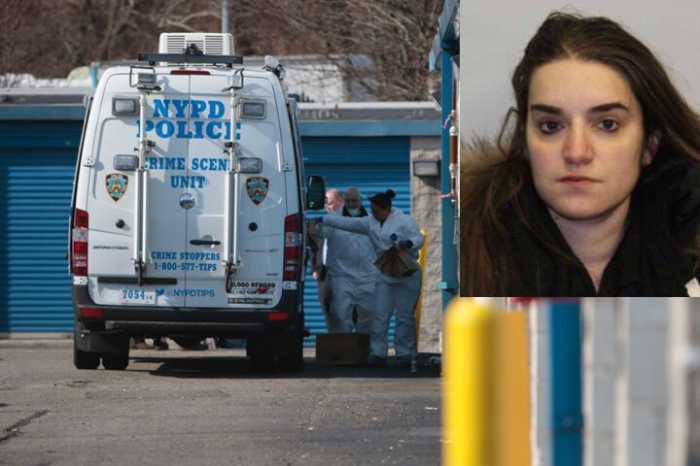Mayor Bill de Blasio announced Thursday the “historic” signing of an agreement between the NYPD and the Civilian Complaint Review Board (CCRB) over a new disciple matrix first introduced during the his State of the City address last week.
The document, known as a memorandum of understanding, lays out a more codified agreement between the CCRB and the NYPD on a series of reforms aimed at making the police department and its process for disciplining its officers more transparent.
De Blasio was joined at his Thursday briefing by Police Commissioner Dermot Shea and Frederick Davie, the chair of the CCRB, who collaborated on the drafting of the agreement between the two agencies, which have historically been at odds with one another.
“We just came from a historic event, one I couldn’t be prouder off,” Shea said. “As much as we are committed to further building trust, I will be the first to say, we have a lot of work to do. We have a good base to build on but we got to water it, we got to let it grow, we got to nurture it.”
The discipline matrix lays out more clearly defined penalties to be issued to an officer who violates the department’s code of conduct.
Punishment ranges from the stripping of vacation days to outright termination.
Thursday’s agreement signals a commitment from the NYPD to honor the matrix and the CCRB’s recommendations for punishments in cases of police misconduct. Despite the reforms, the police commissioner retains the power to hold final say over any disciplinary measures doled out to members of the department.
“I think the closer we can get to the CCRB’s decisions being final the better we’d feel,” Davie said. “I think we have come as far as we can.”
De Blasio noted the agreement has the power to establish a deeper trust between police and the communities they have been sworn to serve, furthering an early campaign promise that many critics say the mayor has failed to live up to.
“The discipline matrix is a game changer,” de Blasio said. “This is something that I think is going to make things so much clearer for everyone.”
The new reforms increase the CCRB’s oversight power over the NYPD. The agency will no longer need a complaint from a citizen to investigate potential incidents of police misconduct. Additionally, the agreement allows for the CCRB to review an accused officer’s full employment history with the NYPD. Prior to Thursday’s memorandum of agreement, the CCRB could only review an accused officer’s history with the board itself.
The agreement and the discipline matrix are part of a larger series of reforms, known as the David Dinkins Plan, to expand the power of the CCRB.
“The David Dinkins Plan is an important part of the future of public safety,” Davie said. “For years, the CCRB has advocated for changes and the Dinkins plan formalizes the way the public can affect NYPD policy.
“Empowered oversight is integral to public safety,” Davie added.
This story originally appeared on amny.com.




































